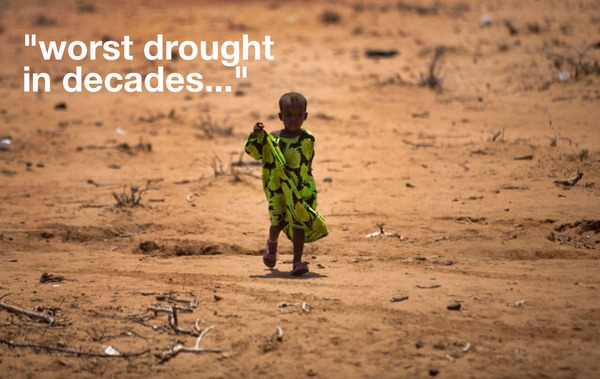Gereja merupakan organisme yang hidup dan bukan sekedar organisasi buatan tangan manusia. Gereja harus di mulai di rumah tangga kita masing-masing dan bukan sekedar aktivitas religius belaka namun bagian kehidupan sehari-hari. Gereja harus jadi terang dan garam di luar dinding gedung gereja. Sebab gereja adalah kita
Jumat, 28 Juli 2017
Is the Church for You?
Is the Church for You?
|
|
 |
Bill Hull
Co-founder, The Bonhoeffer Project
How my parents ROCKED this lifestyle of discipleship and mission!
It really is a good day. I’m not saying everything is going perfectly in life. But the Good News has already touched down here for Team K (what we call our family) and we’re grateful for this life we live together on mission with God...in the normal rhythms of life.
What a week of discipleship as a lifestyle it’s been already!
(If you missed my last couple of emails, you missed a lot of our story. Read them now.)
I promised you a pretty exciting and cool
way to be a part of a ‘lifestyle apprenticeship’
with us…Stick with me, I’m getting to it.
way to be a part of a ‘lifestyle apprenticeship’
with us…Stick with me, I’m getting to it.
We used to call our first missional community “La Familia”. And that’s what it was: the Family. Our family. God’s family here on Earth. (Tacoma to be more
exact.)
Like I already shared, this lifestyle is pretty different than the typical Christian church experience. And it’s not for the comfortable, consumer or couldn’t-care-less.
Let me share with you a little bit of what this life together, experiencing our Christian faith and the good news of the gospel looks and tastes like in everyday life.
And I won’t do it by bragging or trying to look good...I’ll share a story of when my parents came to visit us and how quickly our language, lifestyle and rhythms grabbed their hearts and moved them into the center of this eternity now lifestyle.
Johnny Red and a Dizzle
My mom and dad were great people and pretty much your average Christians who “attended church” a couple times each week for more than thirty years. They gave at least 10% of their income to the church and more to missionaries around the world.
When we first started to live this “everyday faith”, my parents had a hard time grasping just what it was we were trying to do or be as these missionaries. Previously, when I was a pastor at a very large suburban church near Chicago, they understood my life of meetings at the church building every day.
They loved to come watch me preach in front of thousands of people on Sunday with my face twelve-feet tall on the jumbo video screens. But what exactly do you do now?
So they decided to come for a visit to see and experience this lifestyle for themselves.
They arrived the day before we threw a very large Labor Day party for a real eclectic mix. There were a bunch of “regular” folks, who were my neighbors. Some kids with their parents. Several guys and gals from our missional community, which at the time was mostly twenty-something hipsters. They brought some of their friends and girlfriends along.
And there were my parents.
Kind of a freak show really.
But my Dad eased in and started making the rounds at the party, talking with folks. He ended up in a conversation with a good friend of mine we called Dizzle. (“What is a ‘dizzle’?” he later asked me.)
My Dad encouraged him in his new teaching job that was going poorly, and told him he would pray for him. Weeks later Diz told me that everything had turned around for him at work, and to be sure to thank my dad for praying for him!
Dad also spent a lot of time that day talking to a young, long black-haired, super-tattooed rocker who went by the name of “Johnny Red.” Johnny was a drug addict and using several drugs at the time.
My father recounted his own struggle with alcoholism and how Jesus had taken that addiction and destructive lifestyle from him, saving his life and marriage.
He encouraged Johnny not to try harder, but to trust Jesus more. I could hardly believe what I was seeing and hearing.
My Dad was tearing up this missionary thing!
Later that week, I took my folks, along with La Familia on a walk around our neighborhood. I asked my community to notice, as we walked around, anything or anyone that was broken, messed up, or not the way that God desired it to be.
There were run-down houses, broken fences in need of repair, and a park full of trash. We overheard a young couple having a very heated discussion. The husband was not very happy about something and seemed to be drunk.
We prayed and asked God to show us which of these people or things he would have us be a part of restoring and healing in the weeks ahead. Then we walked home. There were no crazy epiphanies, but we were listening.
Afterward, my dad said to me,
"I have never done anything like that before. But I think I’m getting it.
Most people in your neighborhood would never go to church to hear about Jesus, so you are taking the church and Jesus and his family to them. Is that right?”
Yes, Dad. I couldn’t have put it better myself.
There it is. A taste of the ease and “normalcy” of our life lived together on mission, as a very diverse family. Young, old, hip–and in my Dad’s case–definitely
square…
Everyone engaged right where they’re at on the journey, and everyone involved. An ongoing, integrated lifestyle apprenticeship.
Yesterday, I promised the visionary practitioners and pioneers among you (who are ready to rise above the status quo) a very special opportunity:
What if you could come to my house,
along with my family and community
and experience this lifestyle for yourself?
And then take it home and share it with others?
Awesome right?!
It really is time to move your faith from Sunday-to-Sunday, to a daily vibrant experience in the normal rhythms of your life. An authentic faith lived with your family and close friends.
Start to live one integrated life versus living “your real life” and then fitting in your “Christian life”, responsibilities and duties, by experiencing an integrated lifestyle apprenticeship.
Discover a unique combination of innovative ideas, teaching, heart transformation and immersive experiences (life on life). Combined with daily, weekly LIVE encouragement.
But there is only room for 30 people, and it starts pretty soon.
I’m excited to start doing this for you!
~Caesar
P.S. Be sure not to miss the opportunity to get a free 15 minute missional lifestyle consultation with me on the phone to be sure you’re a good fit for this apprenticeship.
P.P.S. If you have any questions or “wonderings” at all, hit REPLY and let me know. I’ll get right back to you. 30 spots will fill up FAST!
Christ My Righteousness
|
|
|||
|
|||
|
The Return of the King
|
|
|||
|
|||
|
Panggilan untuk Memberitakan Injil
Panggilan untuk Memberitakan Injil
Shalom,
Sering kali, seseorang melawan
ketidaknyamanan terhadap sesuatu dengan mengeluarkan banyak alasan yang
akan membuatnya memiliki kesempatan untuk aman. Bagaimana dengan pemberitaan Kabar Baik
bagi jiwa-jiwa terhilang? Apakah hal ini menjadi sesuatu yang nyaman
bagi Saudara? Kebanyakan tidak sehingga kegiatan ini sering kali
dihindari. Banyak sekali alasan yang akan diutarakan untuk menolaknya,
mulai dari anggapan bahwa itu bukan bagiannya, bukan panggilan, sampai
ada yang terus terang dan berkata, "Saya takut ditolak jika harus
menyampaikan tentang kekristenan, apalagi menyampaikan Injil."
Bersyukurlah karena Tuhan tidak pernah memiliki alasan untuk tidak
mengasihi kita. Andai Ia mengeluarkan satu alasan kecil saja, "Aku tidak
mau engkau selamat karena engkau menolak panggilan-Ku untukmu,"
celakalah kita. Cobalah untuk melihat siapakah Dia dan siapakah kita,
Dia Tuhan dan kita adalah hamba-Nya. Dia berkuasa dan kita lemah, Dia
sumber dan kita adalah peminta.
Dalam edisi e-JEMMi kali ini,
redaksi akan menyajikan sebuah artikel menarik yang akan membawa kita
untuk mengerti dan menghindari empat alasan utama mengapa seorang yang
dipanggil tidak mau mengerjakan tugasnya. Kiranya setelah membaca
artikel ini, hati dan pikiran kita semua akan semakin terbuka untuk
mengambil bagian dalam pemberitaan Injil. Selamat membaca. Tuhan Yesus
memberkati.

|
Staf Redaksi e-JEMMi,
Ayub T. |
|
ARTIKEL
Empat Alasan Kita Tidak Menceritakan Injil
Halaman saya dikotori dengan bunga
gulma kuning yang mengerikan. Ya, dandelion. Sebagai anak-anak,
sangatlah menyenangkan untuk memetik satu bunganya yang berwarna putih,
memegangnya, dan memutar-mutarnya. Perlakuan itu akan menyebabkan
serbuk-serbuknya tersebar ke udara, dan akhirnya mendarat lagi di
rumput. Pada saat itu, saya tidak menyadari bahwa saya telah menyebarkan
gulma liar yang menyerang ini sehingga mengganggu pertumbuhan rumput
yang dirawat dengan hati-hati. Sekarang, sebagai pemilik rumah dan
pemilik kebun, setiap akhir pekan saya bekerja keras untuk mencabut
gulma ini yang tampaknya terus menyebar, terlepas dari apa yang saya
lakukan untuk menghentikannya.
Dandelion berkembang biak dan
tersebar secara alami, seperti halnya Injil. Pertimbangkan sejenak
bagaimana berita tentang Yesus tersebar ke mana pun ia pergi (Markus 1:21-28; 40-45; 5:1-20).
Meskipun Yesus berusaha untuk tidak menunjukkan kegemparan, ketenaran
dan penyembuhan dari-Nya menyebar secara jauh dan luas. Seperti halnya
dandelion matang yang berhamburan terkena angin, yang bertumbuh di mana
pun ia diterbangkan. Perjalanan Injil adalah seperti itu, dari orang ke
orang, keluarga ke keluarga, dan dari masyarakat ke masyarakat.
Firman Allah melejit seperti itu, dengan caranya sendiri, dalam kitab Kisah Para Rasul:
Jadi, jika firman Allah -- kabar
baik tentang Yesus Kristus -- secara inheren memiliki kekuatan untuk
meningkat dan berlipat ganda melalui karya Roh Kudus, mengapa
penginjilan begitu sulit? Mengapa kita tidak membagikan Injil lebih
daripada yang kita lakukan? Kita perlu bertanya apakah kita adalah angin
segar yang menyebabkan benih kabar baik dapat tersebar, atau
sebaliknya, kendala yang mencegahnya untuk bergerak lebih jauh dan lebih
cepat. Sayangnya, banyak dari kita yang lebih menyerupai seperti
dinding dibandingkan angin. Akan tetapi, mengapa?
Empat Kendala Penginjilan
Kita Mengatasi Kendala Bersama, Tidak Sendirian
Jika melakukan pemuridan adalah misi kita (Matius 28:18-20),
bagaimana pengikut Kristus dapat mengatasi hambatan-hambatan tersebut
sehingga dapat menjadi saluran anugerah kepada yang terhilang? Salah
satu cara utama agar kita dapat mengatasi kurangnya pengetahuan akan
Injil, perasaan apatis, rasa takut, dan kurangnya belas kasih adalah
dengan berkumpul bersama dengan sesama orang percaya untuk mengingat dan
menumbuhkan panggilan dan keyakinan inti kita.
Kita adalah orang-orang yang telah mati untuk diri kita sendiri dan hidup bagi Kristus (Galatia 2:20).
Kita memiliki hak istimewa yang mendalam, untuk saling mendorong dalam
mengasihi dan mengerjakan perbuatan-perbuatan baik, yang telah Allah
tetapkan sebelum kita (Ibrani 10:24; Efesus 2:10). Beberapa karya yang baik tersebut akan menjadi kesaksian lisan terhadap kasih karunia Allah dalam hidup kita dan dalam pemberitaan Injil Yesus Kristus bagi yang terhilang.
Dalam konteks komunitas Kristen,
orang percaya lainnya dapat berbicara dan mengingatkan kita pada
kebenaran sejati yang perlu kita dengar. Dietrich Bonhoeffer menyatakannya demikian:
"Kita
berbicara satu sama lain atas dasar pertolongan yang sama-sama kita
butuhkan. Kita saling menasihati untuk melakukan dengan cara yang
Kristus perintahkan untuk kita lakukan. Kita memperingatkan satu sama
lain untuk melawan ketidaktaatan yang menjadi kehancuran kita bersama.
Kita bersikap lembut dan kita bersikap keras satu dengan yang lain
karena kita sama-sama mengetahui, baik kebaikan maupun didikan keras
dari Allah." (Life Together, 106)
Semua orang Kristen memerlukan
sesama orang percaya untuk membantu mereka bertumbuh dalam pemahaman
mereka tentang Injil. Kita semua membutuhkan orang lain dalam hidup
kita, yang memacu kita untuk memberi kasih sayang yang lebih besar dan
semangat untuk mencintai yang terhilang dengan berbagi kabar baik
tentang Yesus dengan rela, yakin, dan berani. Berikut bagaimana keempat
cara ini dapat berhasil dalam sebuah komunitas.
Empat Langkah untuk Membagikan Injil dengan Lebih Baik
Bersama dengan sesama orang
percaya, kita harus saling mengingatkan tentang kecukupan firman Allah
untuk melakukan pekerjaan-Nya bagi tujuan-Nya. Jika kita yakin pada
kemampuan Injil untuk mengubah hidup, kita dapat secara berani dan tanpa
pandang bulu memberitakan kabar baik ini dengan kasih yang berkorban
bagi mereka yang terhilang, dengan harapan bahwa beberapa orang akan
diselamatkan. (t/N. Risanti)
|
||||||||||||||||||
PROFIL SUKU LOKAL
Bolango
Bolango
Pendahuluan/Sejarah
Mereka mengatakan kata Bolango berasal dari kata balangon yang berarti 'laut/lautan'. Orang-orang Bolango adalah orang-orang Gorontalo
yang telah berkelana ke suatu daerah di provinsi Sulawesi Utara
kemudian menikah dengan orang-orang Bolaang yang berasal dari daerah
itu.
Persatuan yang dihasilkan antara
kedua bangsa ini juga menciptakan penggabungan bahasa dan pencampuran
budaya yang menghasilkan sesuatu yang berbeda dari yang dimiliki oleh
orang Bolaang atau Gorontalo sebelumnya. Saat ini, Bolango tinggal di
daerah perbatasan antara Gorontalo dan Sulawesi Utara, di Kabupaten
Bolaang Uki, di Kabupaten Bolaang Mongondow di provinsi Sulawesi Utara.
Itu sekitar 3-4 jam di sebelah timur kota Gorontalo. Bahasa Bolango
adalah bagian dari kelompok linguistik yang lebih besar yang disebut
keluarga Gorontalik yang juga mencakup bahasa Bintauna, Kaidipang, Buol,
Gorontalo, Lolak, dan Suwawa.
Seperti Apa Kehidupan Mereka?
Sejak awal, masyarakat ini
memiliki tiga cara gaya hidup bersama. Ketiga metode kehidupan ini masih
berlangsung hari ini. Mereka adalah: (1) Pogogutat, potolu adi', (2) Tonggolipu', dan (3) Posad (mokidulu). Tujuan hidup bersama adalah sama, tetapi bentuk ungkapannya agak berbeda. Pogogutat, potolu adi' ada hubungannya dengan keluarga. Pogogutat berasal dari kata utat yang berarti 'saudara' (sibling, sepupu). Potolu adi' berasal dari kata Tolu adi' (motolu adi')
yang berarti 'ayah, ibu dan anak' (menjadi istri dan anak). Tradisi
budaya yang khas dalam masyarakat umum adalah orang-orang akan saling
menyapa saat mereka berpapasan di jalan tanpa berhenti. Mereka menyebut
ini mogimbalu'. Imbalu' (ucapan) adalah tanda hormat
kepada orang lain. Mereka mungkin atau bahkan mungkin tidak mengenal
orang itu. Bentuk ucapan ini seperti mengucapkan "Selamat pagi" atau
yang serupa. Wilayah Bolaang dulunya agak terbelakang. Namun, saat ini,
dengan pembangunan jalan raya Selatan sebagai jalur alternatif antara
Sulawesi Utara dan Gorontalo, pembangunan ekonomi telah dibangkitkan.
Namun, jalannya tidak terlalu ramai dan jembatannya rusak karena banjir
bandang. Penghasilan masyarakat meningkat karena pembukaan pabrik
pengolahan ikan di Bitung yang menangani produksi tuna Bolaang.
Apa Kepercayaan Mereka?
Orang-orang Bolango mayoritas
beragama Islam. Ada juga orang Bolango yang memeluk agama lain. Tidak
banyak orang nonmuslim yang tinggal di daerah Bolango, terlepas dari
kenyataan bahwa kelompok ini tinggal sangat dekat dengan kelompok orang
Minahasa, yang mayoritas Kristen.
Apa Kebutuhan Mereka?
Penebangan liar di daerah Bolango
adalah penyebab banjir yang merusak jembatan dan jalan akibat volume
pasir, tanah, dan batu yang dibawa oleh air banjir. Jika kerusakan hutan
terus memburuk, rumah di sekitarnya akan terancam juga. Oleh karena
itu, kesadaran masyarakat akan pelindungan hutan diperlukan supaya
penghijauan dapat dilakukan. Hal ini bisa membuka lapangan pekerjaan
yang akan membentuk sebuah langkah terpadu untuk memenuhi kebutuhan di
bidang ini. (t/Jing-Jing)
| Diterjemahkan dari: | ||
| Nama situs | : | Joshua Project |
| Alamat situs | : | https://joshuaproject.net/people_groups/20295/ID |
| Judul asli artikel | : | Bolango |
| Penulis artikel | : | Tim Joshua Project |
| Tanggal akses | : | 10 November 2016 |
please respond - the need is urgent
The drought in Kenya leaves families and children hungry.
You can rescue them today through new wells and farms!


Drought across Kenya has made 2.6 million people food insecure and has seen a five-fold increase in food prices, as well as conflict.
You can help these families right now while the need is urgent. Read more.
Your gift goes 100% to new wells and farms.
These people facing drought and hunger aren’t passive victims simply waiting for charities to save them. They are hard working people willing to do what it takes to help their families. They are willing to farm and they are committed, even in these hard times, to reaching out to others who do not know the love of Christ.
You can give them sustainable water and food today!
Thank you for your care!
Love - Roger and Brooks
Get involved with us!
Connect with us
You can rescue them today through new wells and farms!

Drought across Kenya has made 2.6 million people food insecure and has seen a five-fold increase in food prices, as well as conflict.
I have to walk very far to find
water, now, and there is not enough for our crops to grow. It is
becoming difficult to provide even one meal for the children and I fear
for their health.
Fortunately, our church planters are equipped to drill more wells and start new farms while reaching many.You can help these families right now while the need is urgent. Read more.
Your gift goes 100% to new wells and farms.
These people facing drought and hunger aren’t passive victims simply waiting for charities to save them. They are hard working people willing to do what it takes to help their families. They are willing to farm and they are committed, even in these hard times, to reaching out to others who do not know the love of Christ.
You can give them sustainable water and food today!
Thank you for your care!
Love - Roger and Brooks
Get involved with us!
Connect with us
Exciting Updates from Richard and Carolyn Hyde
This
week we hear from Richard and Carolyn Hyde as they continue inviting
people across the globe into the LK10 Community! In their current
travels, they are spreading the word about what God is doing in Israel.
At the same time, they are sharing the ways their work is intersecting
with LK10. Almost 100 new people have signed up for Church 101 as a
result, and some of these folks who have signed up have since told their
friends about LK10, and now their friends want to sign up too! Click on
the picture below to watch their recent conversation with John White.

As you probably remember from our last conversation, the Hydes are primarily focused in Israel. But since our last talk, their work has taken them to several spots in the United States, to the Philippines, and soon to Singapore, Indonesia, and Malaysia. So as they continue this trip, I want to invite everyone in the LK10 Community to pray the 10:2b prayer for their work, that the Lord of the Harvest will continue bringing about workers into the fields.
I know that different people receive these kinds of stories differently. Some are encouraged by the amazing reception that the Hydes and others like them receive. Some hear these kinds of stories and ask questions like, "why am I not the person flying all over the world sharing the Gospel?" Or even, "why are people not receiving the invitation with as much excitement here where I live?"
And so I also want to invite everyone to continue praying to the Lord of the Harvest for your own place. Different fields produce different results. Some fields are less productive. And as our Jewish brethren would remind us from Torah, sometimes a field just needs to be fallow for a while before it can be healthily productive again (I have a feeling we're experiencing this right now in parts of America). But regardless, our first task is to pray. Or rather, our first privilege is to pray. We're on this journey with God, and God is in the lead. If things aren't happening, don't take it personally. God's still at work, in you and in your town/city/state/country. Continue to pray, and, as my friend Elaine likes to say, release the outcome.
Finally, we've seen over and over again that practicing gratitude makes us far more open to God and God's activity in the world around us. So if you're like me and have a hard time not asking "why not me?", then practicing thankfulness about what God is doing through the Hydes is probably a great place to start. And if you're not a grump like me, you're probably already there. Regardless, I'm really thankful for what the Hydes are doing, where God is taking them, and for what more God could do through their ministry.
For more information on the Hydes' work, check out their website at heartofg-d.org, and check out this video for a helpful overview of what's been going on recently. And as always, swing by the Facebook group for more conversation.

As you probably remember from our last conversation, the Hydes are primarily focused in Israel. But since our last talk, their work has taken them to several spots in the United States, to the Philippines, and soon to Singapore, Indonesia, and Malaysia. So as they continue this trip, I want to invite everyone in the LK10 Community to pray the 10:2b prayer for their work, that the Lord of the Harvest will continue bringing about workers into the fields.
I know that different people receive these kinds of stories differently. Some are encouraged by the amazing reception that the Hydes and others like them receive. Some hear these kinds of stories and ask questions like, "why am I not the person flying all over the world sharing the Gospel?" Or even, "why are people not receiving the invitation with as much excitement here where I live?"
And so I also want to invite everyone to continue praying to the Lord of the Harvest for your own place. Different fields produce different results. Some fields are less productive. And as our Jewish brethren would remind us from Torah, sometimes a field just needs to be fallow for a while before it can be healthily productive again (I have a feeling we're experiencing this right now in parts of America). But regardless, our first task is to pray. Or rather, our first privilege is to pray. We're on this journey with God, and God is in the lead. If things aren't happening, don't take it personally. God's still at work, in you and in your town/city/state/country. Continue to pray, and, as my friend Elaine likes to say, release the outcome.
Finally, we've seen over and over again that practicing gratitude makes us far more open to God and God's activity in the world around us. So if you're like me and have a hard time not asking "why not me?", then practicing thankfulness about what God is doing through the Hydes is probably a great place to start. And if you're not a grump like me, you're probably already there. Regardless, I'm really thankful for what the Hydes are doing, where God is taking them, and for what more God could do through their ministry.
For more information on the Hydes' work, check out their website at heartofg-d.org, and check out this video for a helpful overview of what's been going on recently. And as always, swing by the Facebook group for more conversation.
How to Mature People Through Disciple Making
LifeWay
CEO, Thom Rainer, and LifeWay Director of Church Multiplication, Daniel
Im, are speaking at this year's National Disciple Making Forum.
Thom Rainer is one of our keynote speakers.
Daniel Im is leading the track called, "How to Mature People Through Disciple Making".
This
track is important for church leaders, because after all, you will
never be able to grow or multiply your church without first maturing
your congregation through disciple making.
Daniel will begin the track by outlining how to approach discipleship
from a systems perspective.
Scott
McConnell and Lizette Beard, with LifeWay Research, will then unpack
the results of one of the largest multi-year studies on discipleship,
and how you can leverage this research for disciple making.
Follow Daniel Im and the LifeWay team track by registering for the Forum here.

P.S. Learn from Thom Rainer, Daniel Im, and the LifeWay team in person by registering for the National Forum here.
Also, here are some recently published articles from our blog—enjoy!
How to Work Together for Discipleship
How to Work Together for Discipleship
by Bill Hull
Paul begins Ephesians 4
by looking at how the body of Christ is one and how its members must
work together to make everyone and everything whole. He instructs,
“Always be humble and gentile. Be patient with each other, making
allowance for each other’s faults because of your love. Make every
effort to keep yourselves united in the Spirit, binding yourselves
together with peace” (Eph. 4:2–3 NLT).

Becoming
a mature disciple means refusing to live a “minimalist” spiritual life
in isolation (just me and Jesus). The mature also reject shortcuts.
There are no steroids for spiritual growth. It is a long-term process
that must be done with others, and it is challenging. Paul’s
instructions to the church are personal, but not individualistic. He
gives these instructions to the community, not individuals, because they
must learn to intentionally train together.
What We Can Learn through Church
Our
churches should be where we learn to love, both our friends and our
enemies. Love is actions taken for the benefit of others. The emphasis
here in Paul’s letter is on becoming a humble, patient, kind person. We
must not put the responsibility on others to treat us well. It is our
responsibility to respond with grace and love to others. Of course, we
can find ways to avoid these relational challenges. Some people think
they belong to a church by slipping into the service on Sunday morning
and then slipping out without any meaningful contact. In my mind, they
might as well skip the service and read the Sunday paper instead. Either
way, they are living a banal life of self-absorption.
At
times our churches are beautiful, and at times the ugliness of sin
shows through. I have never been loved so well nor hated so deeply than
by my fellow followers of Christ. I have spent many sleepless nights
dealing with conflict in my church. Yet in the end, most of the ugly
stuff has faded from memory. We’ve worked out our conflicts, and God has
turned them into good. Many scream in the middle of the pain of
conflict, “I don’t need this!” But the Bible is clear that we do need
it. God uses pain as fuel for our formation in Christ (1 Peter 1:6–9).
Christ as Example
Who
was humble, patient, kind, sacrificial, and made allowances for our
faults? Christ, of course (Phil. 2:5–8). Our churches should be
dedicated to shaping us to become like Christ. We can’t get there
without taking up our own cross and suffering. Becoming mature takes
time and cannot be hurried. So leaders creating the right environment
are basic to transformation.

Follow Bill Hull on Twitter here and Facebook here.
This excerpt has been adapted from Conversion and Discipleship.
Image credit: Unsplash.
Posted on Wed, July 26, 2017
by kris hull filed under
John Fenn, How Jesus Heals Emotions #6
Hi all,
I was 17 years old when a friend of my mom's asked me for prayer concerning nightmares she was having. That was 1975 in the days
of the charismatic renewal, when the Holy Spirit was being experienced
in the denominational churches but there weren't yet any independent
charismatic churches. As a result there were many home based "prayer
& praise" meetings and Bible studies attended by anyone who had been
baptized with the Holy Spirit or was curious about it, because the people in the pews knew more than their priests and pastors about the Holy Spirit at that point.
That
is why my mom's 45 year old friend felt comfortable asking teenage me
for prayer for her nightmares. As soon as I laid hands on her head and
started praying I saw what I would call a 'closed vision', meaning when
my eyes were closed I could see
the vision, but when my eyes were open I couldn't. An open vision is
when your eyes are open and you are 'in the Spirit' as John called it in Revelation 1:10
and 4:2, where everything disappears and you are in the Lord's realm,
or your eyes are open and you see the natural world AND the spiritual
world almost as an overlay (that is by far the most common one I have).
This
wasn't that however. When my eyes were shut a scene played out before
me. When my eyes were open I was in the natural realm like normal. The
vision was of an event that happened to her when she was about 7 years
old, which she acknowledged through tears as I described what I was
seeing. I then prayed for her and the Lord touched her and completely
healed the memory of that event, and she reported a couple weeks later
she'd had no more nightmares since that time of prayer with me.
Balance
Most
of the ministries that advertise themselves as 'inner healing'
ministries focus to one degree or another on a supernatural touch from
the Lord to take away memories of past pain such as I describe above. If
not that, then it is often deliverance from demons focused or about
past generations as the blame for why that person is plagued by x problem or memory.
What we see in scripture is practical
walk-it-out-yourself steps a person takes to regain emotional or mental
health after a touch or revelation from the Lord. I started talking
about the prophecy of Messiah from Isaiah 42:1-4 which says in part that
Messiah will not break a bruised reed, and won't fail nor be
discouraged until He has set righteousness in their lives - that is what
we've seen in scripture.
There
are times when the Lord will provide a word of knowledge about a past
event and touch the person concerning that event, but even when that
happens a person must 'walk out their salvation' to see His
righteousness in their lives, meaning they have to rebuild their
emotions and thoughts in a healthy (God's) way. The person who was
abused by say, their father when they were a child, can be touched by
the Lord about a particularly painful event with him, but when they see
their father every week they still must apply that touch from the Lord
to their relationship with him in order to see God's righteousness in that relationship and in their own emotions and thoughts.
Most
certainly the woman at the well received a touch from the Lord when He
told her 'everything I ever did', but then she still had to go back into
that city and live her life. The man who had the Legion cast out, who
wanted to run away with the Lord in his new life in Christ, was instead
told by the Lord to go back to his home and friends and tell them what
great things the Lord had done for him. The woman in adultery was
commanded to sin no more but to go and rebuild her life. They had to
walk out that touch from the Lord they received.
Did the chicken cross the road or did the road pass beneath the chicken's feet?
The
people we've covered in this series had known issues - multiple
relationships, demons in them, and so on. But one aspect of emotional
healing we didn't cover concerns the unknown-to-the-person need for
emotional healing. This is the person who thinks they are fine, unaware
their priorities in life which they think are in line with God, are
really not.
The
rich young ruler is such a case. When the need for emotional health
isn't obvious like a woman caught in the act of adultery or a man
with multiple demons, or a woman who has lived through multiple
marriages, relationships and sexual partners, how does the Lord bring
that person into emotional health?
Once
again we see the Lord brings a person to the point they must make a
decision for health and a rearrangement of their life. In Matthew
19:16-22 the Rich Young Ruler comes to Jesus saying, 'Good Master, what
must I do to have eternal life?'
Immediately
Jesus stops him and asks, "Why are you calling me good?" We read the
verse without stopping, forgetting this was a real conversation, filled
with pauses, reflection, and deep thought before each response. The man
had just called Jesus 'good', to which Jesus replied, "There is no one
who is good but God, so why are you calling me good?"
In
other words young man, by calling me "Good Master" and knowing there is
none good but God, are you therefore calling me God?" That was Jesus'
question back to him - that was the big issue to his question, what must
he do to have eternal life? We know it is believing in Jesus, but the
young man may have just been trying to be polite calling Him 'good
master' - Jesus used the moment to zero in on the issue: Do you believe I
am God?
Here is where the road is passing beneath his feet
The
man's need for an emotional rearrangement wasn't apparent. By the
standards of the day, much like the 'Prosperity Movement' of 2 decades
ago he equated financial blessing with God's endorsement of him and his
lifestyle. Wrong. He was blessed not because God was blessing him for
being righteous, God was blessing him so that he might see it was not
his righteousness that brought him the blessings of wealth - God was
doing it because He couldn't reach him any other way. God was trying to
reach him through his idol of money and status, it wasn't an endorsement
of his spiritual life.
(We
see the same in the church at Laodicea in The Revelation 3:14-22 who
thought because they were rich and spiritual they needed nothing, but
the Lord told them in His eyes they were naked (not righteous - no robes
of righteousness) and blind and poor and wretched and miserable.)
No answer is the wrong answer, so Jesus tried another approach
Upon
not getting the honest response He sought, Jesus backs off and
approaches the same issue of who he believed Jesus was another way,
talking about the Commandments and if he wanted eternal life to sell all
he had and come be a disciple of Jesus. The man went away sad. The
conversation exposed his battle between money and status, and his desire
for eternal life. Upon seeing the ugliness of his own heart he backed
away rather than choosing to go through the ugliness of his sin and
emotional need to lay hold on eternal life.
It
is the same with people today - it is all about the exposing of our
heart, or our past decisions that put us where we are today, and then
making the right choice. There may be a touch from God here and there
along the way, but more often than not He simply gives us revelation
about our heart, shines His light on past mistakes, and then gives us
the opportunity to take a step in a new direction.
That
direction is towards emotional health, but it is not often the easy
choice. Usually it is the more difficult choice as we've seen with the
woman at the well who had to live in that city, with the woman in
adultery who had to go and sin no more and restore her life, with the
man who had Legion and had to go back to his home and friends.
The
difficult decision is very often the decision the Lord wants us to make
and empowers us to do so, but it is an act of faith, a step into
something new - emotional health. Healthy thoughts, healthy feelings,
healthy relationships - these are what renew the mind and rebuilds
lives. Even if there is a mighty touch from God along the way, you still
have to make right decisions, discipline yourself to right thoughts and
feelings - that is the only way to emotional health. It is the doer of
the Word, not the hearer only, that lives the blessed life.
New subject next week that is somewhat related, 'Controlling your emotions' - until then, blessings,
John Fenn
www.cwowi.org and email me at cwowi@aol.com
New CD/MP3 Series
**SPECIAL BUNDLE SALE**
July 14th to August 14th
"According to Your Faith" & "How Your Authority Works"- 4 CDs $15
- These series break the stereotypical teaching on faith, explaining in
practical day-to-day terms how to know when to act and when to stand
and trust. There are times we can tell heaven is watching, waiting for
what we decide - but how do we know which way to decide, what to
believe?
These 2 series will help you figure out where you are in your situation
and give you wisdom on how to proceed. Very practical, behind the
scenes view, series.
Your Faith" & "How Your Authority Works"- 4 CDs $15
- These series break the stereotypical teaching on faith, explaining in
practical day-to-day terms how to know when to act and when to stand
and trust. There are times we can tell heaven is watching, waiting for
what we decide - but how do we know which way to decide, what to
believe?
These 2 series will help you figure out where you are in your situation
and give you wisdom on how to proceed. Very practical, behind the
scenes view, series.
 Your Faith" & "How Your Authority Works"- 4 CDs $15
- These series break the stereotypical teaching on faith, explaining in
practical day-to-day terms how to know when to act and when to stand
and trust. There are times we can tell heaven is watching, waiting for
what we decide - but how do we know which way to decide, what to
believe?
These 2 series will help you figure out where you are in your situation
and give you wisdom on how to proceed. Very practical, behind the
scenes view, series.
Your Faith" & "How Your Authority Works"- 4 CDs $15
- These series break the stereotypical teaching on faith, explaining in
practical day-to-day terms how to know when to act and when to stand
and trust. There are times we can tell heaven is watching, waiting for
what we decide - but how do we know which way to decide, what to
believe?
These 2 series will help you figure out where you are in your situation
and give you wisdom on how to proceed. Very practical, behind the
scenes view, series.
 "I AM", and "Getting to Know our Heavenly Father"- 6 CDs $20 - Jesus made several "I AM: statements claiming He was the I AM who spoke to Moses out of the burning bush,
and the one seen in several Old Testament appearances. This is a must
for any seeking to understand the pre-existence of Christ Jesus, His Old
Testament appearances, and His relationship with the Father, including
how He came to be. "Getting
to know your heavenly Father" is a great follow up series focusing on
not just believing in, but actually knowing and conversing with the
Father on a regular basis.
"I AM", and "Getting to Know our Heavenly Father"- 6 CDs $20 - Jesus made several "I AM: statements claiming He was the I AM who spoke to Moses out of the burning bush,
and the one seen in several Old Testament appearances. This is a must
for any seeking to understand the pre-existence of Christ Jesus, His Old
Testament appearances, and His relationship with the Father, including
how He came to be. "Getting
to know your heavenly Father" is a great follow up series focusing on
not just believing in, but actually knowing and conversing with the
Father on a regular basis.
"Pursuing"
was John's first book and it details many visitations with the Lord and
angels, giving a 'behind the scenes' view of heaven's perspective,
which will help every believer know His ways. 'Knowing" picks up where
'Pursuing' left off, which was just as John was taken to heaven.
'Knowing' is all about heaven and the Father's throne and things related
to his experience there.
Just a word about our On-line Video Bible School
- these classes, so far; Old Testament I & II, Righteousness and
Our Authority in Christ - are a go-at-your-own-pace, no test, investment
in your own faith and understanding of the Word and Lord. Once
registered, your password is good for a whole year so you can take your
time, but as I'm hearing from students, once they start they have a hard
time stopping! Each class is about 45-55 minutes long, so they are in
easy to receive segments...consider investing in a deeper study of the
things of God!
Langganan:
Postingan (Atom)







 "Pursuing the Seasons of God" & "Knowing the Ways of God" audio books - 8 CD's $24
"Pursuing the Seasons of God" & "Knowing the Ways of God" audio books - 8 CD's $24